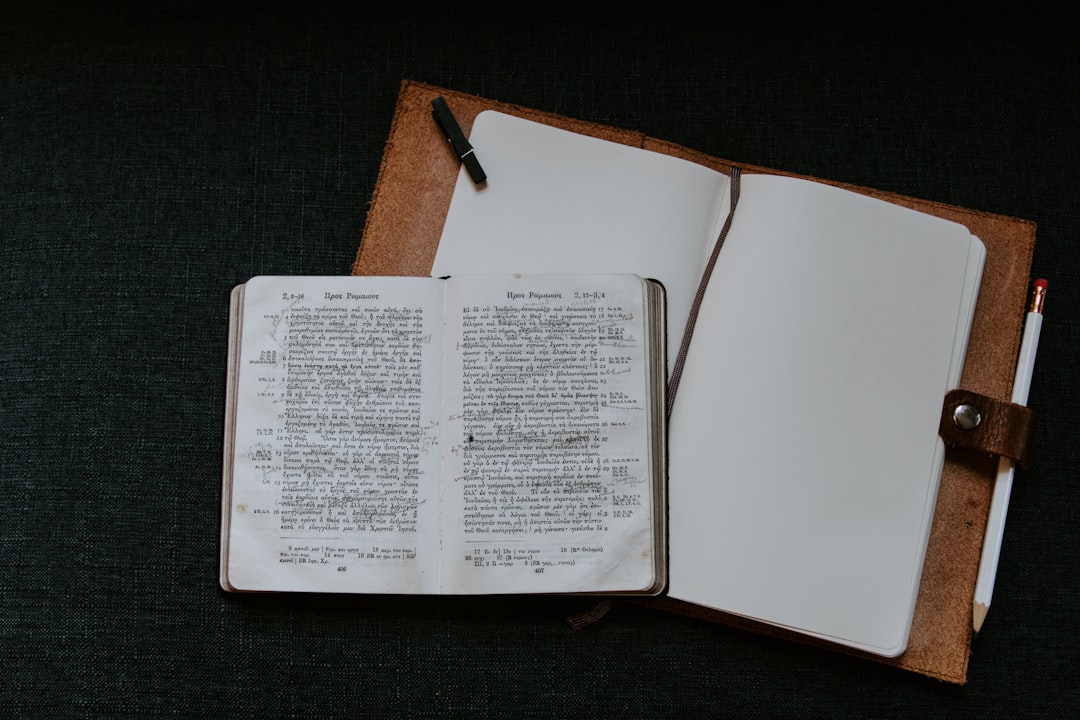Have you ever wondered who Rebekah was in the Bible and what lessons can be learned from her life? Rebekah plays an important role in the Old Testament, especially in the book of Genesis. In this post, we will explore Rebekah’s background, her marriage to Isaac, and her character traits, among other things. Join us to learn more about Rebekah’s life and legacy in the Bible.
The Background of Rebekah in the Bible

When we first meet Rebekah in the Bible, she is identified as the daughter of Bethuel and the sister of Laban. Her story unfolds in Genesis, which is the first book of the Old Testament. Rebekah is an important figure in the Bible because she was the wife of Isaac, the mother of Esau, and the mother of Jacob.
We first learn about Rebekah when Abraham sends his servant to find a wife for Isaac. The servant meets Rebekah at a well and is impressed by her kindness and hospitality. Rebekah takes the servant and his camels to her family’s home where they are warmly welcomed. The servant then explains to Rebekah’s family the divine election of Isaac as the one who will carry on the covenant that God made with Abraham. Rebekah is then asked if she will marry Isaac, and she agrees.

Rebekah’s marriage to Isaac is an important event because it solidified the continuation of the covenant. It was also significant because Rebekah and Isaac were unable to conceive children for many years. This was a source of great sadness and disappointment for them both. But despite their struggles with fertility, Rebekah remained faithful, and eventually, God blessed them with twin sons, Esau and Jacob.
Rebekah’s background shows that she came from a family that valued hospitality and kindness. These are traits that she later exhibits in her own life. She was also a prayerful woman who sought out God’s guidance in her life. When we look at Rebekah’s life and legacy, we see a woman who was willing to do what was necessary to fulfill God’s plan.
Some key takeaways from Rebekah’s background are:
- God can use anyone, regardless of their background, to carry out His plan.
- Hospitality and kindness are important traits to cultivate in our lives.
- Prayer should be a crucial part of our lives as we seek out God’s guidance.
- Fertility struggles can be a source of great pain, but we must remain faithful and trust in God’s plan.
Rebekah’s background sets the stage for the rest of her story in the Bible. In the next section, we’ll look at Rebekah’s role in the covenant and divine election.
Rebekah’s Marriage to Isaac
When Abraham sent his servant to find a wife for his son Isaac, he instructed him to look for a woman from among his relatives. The servant eventually met Rebekah, daughter of Bethuel and sister of Laban, and found her to be the perfect match for Isaac. After seeking permission from her family, the servant took Rebekah back to meet Isaac, who fell in love with her and married her.
Rebekah’s marriage to Isaac was not just a union between two individuals, but it was also significant in the fulfillment of God’s promise to Abraham. Isaac was the son of the promise, and Rebekah became his wife as part of God’s plan to bless Abraham’s descendants and establish his covenant with them.
The union between Isaac and Rebekah was a fruitful one, with Rebekah giving birth to twin sons, Esau and Jacob. However, their marriage was not without challenges. In Genesis 26, Isaac lied to the Philistines about Rebekah being his sister rather than his wife out of fear for his life. Later, Rebekah deceived Isaac in order to ensure that Jacob, rather than Esau, received Isaac’s blessing.
Despite these challenges, Rebekah and Isaac remained devoted to each other and to God. They were a team in fulfilling God’s promise and raising their children to follow God’s ways. Rebekah’s loyalty to her husband and her faith in God are remarkable and serve as an example for all Christians.
Rebekah’s Role in the Covenant and Divine Election
Now that we have a brief background on who Rebekah was in the Bible and her marriage to Isaac, let’s dive deeper into her role in the covenant and divine election.

Rebekah’s marriage to Isaac was not just any ordinary union. Her marriage was a part of God’s divine plan to fulfill the covenant he made with Abraham. In Genesis 12:2-3, God promised to make Abraham’s descendants into a great nation, and through them, all people would be blessed. Isaac was the son of Abraham, and he was to continue this promise. So, when it was time for Isaac to marry, Abraham sent his servant to find a wife from his hometown and family.
Rebekah was the chosen one, and her marriage to Isaac was not just a coincidence. She played a significant role in God’s divine plan for the nation of Israel. God had already handpicked Isaac to be the one to continue the covenant, and he chose Rebekah to be his wife. This shows how God is deeply involved in our lives and orchestrates everything to fulfill his plans.
Rebekah also had a prophetic role in her pregnancy. When she was pregnant, she had a struggle within her womb, and she prayed to God. And the Lord said to her, “Two nations are in your womb, and two peoples from within you will be separated; one people will be stronger than the other, and the older will serve the younger” (Genesis 25:23 NIV).
This prophesy shows that God had already chosen Jacob over Esau to continue the covenant. It also shows that Rebekah had faith and was prayerful. She knew that her pregnancy was not just about her but about the future of Israel.
Rebekah’s character traits of hospitality, kindness, generosity, and obedience to God were what made her suitable for this role in the covenant. It was her faith and willingness to serve God that allowed her to participate in his divine plan. She was not perfect, but she had a heart for God, which is something we can all aspire to have.
In summary, Rebekah played a crucial part in God’s divine plan for Israel and the fulfillment of the covenant. She had a prophetic role in her pregnancy, which showed that God had already chosen the younger son, Jacob, over Esau. Rebekah’s character traits of kindness, generosity, and obedience to God were what made her suitable for this role in the covenant. We can learn from Rebekah’s faith and willingness to serve God.
Rebekah’s Character Traits: Hospitality, Kindness, Generosity, Obedience
« Exploring the Definition of Phileo Love and Its Significance in Relationships
Unveiling the Mystery: Was the Apostle Paul Married? »
Rebekah, the wife of Isaac and mother of Esau and Jacob, is known for her many admirable character traits displayed throughout the Old Testament in the book of Genesis.
One such trait is her hospitality, an important value in biblical times. In Genesis 24:17-19, Rebekah saw a weary and thirsty traveler and took it upon herself to offer him water and offer to water his camels. This act of kindness showed her generous and welcoming nature as a host.
Additionally, Rebekah is characterized by kindness and generosity towards others. In Genesis 25:28, Rebekah’s son Jacob cooked a meal for her, and in return she gave him a blessing. Rebekah’s compassionate nature is further demonstrated in her willingness to help Jacob deceive his father, Isaac, in order to secure the family’s birthright. Although Rebekah’s actions were not justified, her motive was to protect her son from Esau’s wrath.
Rebekah also displays obedience to God’s will throughout the narrative. She receives a prophesy during her pregnancy that the older of her twin sons would serve the younger (Genesis 25:23), and this is fulfilled when Jacob receives the blessing of the firstborn from Isaac. Rebekah’s fulfillment of this prophecy demonstrates her faith in God’s plan and her willingness to submit to it.

Lastly, Rebekah’s prayerful nature is evident in her struggle with infertility. In Genesis 25:21, Isaac prayed to God on behalf of his barren wife, and God answered their prayers by granting them twin sons. Rebekah’s dependence on God in her most trying time shows her reliance on prayer and trust in God’s sovereignty.
Rebekah’s character traits provide insight into her personality and her approach to relationships, family dynamics, and her relationship with God. Her life is an example of the complexities of human relationships and emotions, as well as the importance of faith and obedience to God.
Rebekah’s Struggle with Fertility and the Birth of her Twin Sons
As we look into the life and legacy of Rebekah in the Bible, we cannot ignore the struggles she faced in her journey. One of the most challenging struggles she faced was her fertility issues and the eventual birth of her twin sons, Esau and Jacob.
Rebekah, the wife of Isaac, was barren for a long time and had no children. However, God heard her prayers, and she conceived with not just one, but two sons. The Bible tells us that these twin sons were very different from each other, and their differences often led to sibling rivalry and conflict.

The struggle with fertility is a recurring theme in the Bible, and it shows us the power of prayer and faith in God’s timing. Rebekah’s faith in God never wavered, and she believed that God would answer her prayers. Her persistence in prayer is an inspiration to all of us who face seemingly insurmountable challenges.
The birth of the twins, Esau and Jacob, marked the beginning of a new chapter in Rebekah’s life. As a mother, Rebekah loved both her sons equally, but she favored Jacob over Esau. This favoritism, along with other factors, led to deceit and conflict within their family.
Rebekah’s struggle with fertility and the challenges she faced with her twin sons teach us important lessons about family dynamics, parental favoritism, and the power of maternal instinct. As parents, we must strive to treat our children equally, without showing favoritism or bias towards one child over the other. We must also understand that our children are different from each other, and our role as parents is to nurture and love them just the way they are.
In summary, Rebekah’s struggle with fertility and the birth of her twin sons reveal many important lessons about faith, family, and relationships. As we unpack her life and legacy, we can learn from her example of prayerful determination, generosity, and hospitality, and apply these lessons to our own lives.
Rebekah’s Relationship with her Sons: Sibling Rivalry and Deception
As a mother, Rebekah in the Bible faced the struggles of raising two sons, Esau and Jacob, who were constantly competing with each other. Their rivalry began in the womb, as the Bible describes Rebekah feeling the twins jostling inside her. This competition only intensified over the years, as they vied for their father’s attention and blessing.

Their relationship came to a head when Isaac, their father, grew old and blind and wanted to bless his eldest son, Esau. Rebekah, hearing of Isaac’s plan, saw an opportunity to give the blessing to Jacob, her favorite son. She instructed Jacob to deceive his father, pretending to be Esau and receiving the blessing intended for his brother.
This deception led to a rift in the family and forced Jacob to flee to his uncle Laban’s home. Although Jacob went on to prosper and become a key figure in the Bible, this rift in the family highlights the dangers of sibling rivalry and the negative effects of deceit.
Despite Rebekah’s misguided actions, it’s important to note that she acted out of her maternal instinct to protect and provide for her son. This is not to condone her actions but to acknowledge that motherhood can be a complex and challenging role, especially in the face of competition and adversity within the family.
As we examine Rebekah’s relationship with her sons, we can learn important lessons about the dangers of favoritism, the need for healthy communication and conflict resolution within families, and the importance of living with integrity and honesty.
It’s important to recognize that even in the biblical account of these events, sibling rivalry and deceit can lead to negative outcomes and broken relationships. Through her story, Rebekah reminds us of the importance of nurturing family dynamics built on love, trust, and mutual respect.
Lessons Learned from Rebekah’s Life and Legacy in the Bible

As we delve deeper into the life of Rebekah in the Bible, we can learn much from her faith, character, and struggles. Here are some lessons we can take away from Rebekah’s life and legacy:
-
Trust in Divine Providence: Rebekah’s marriage to Isaac was not a coincidence. It was part of God’s plan to fulfill the covenant made with Abraham. Similarly, God has a plan for each of our lives, and we can trust in His providence even when things don’t go according to our plans.
-
Practice Hospitality and Kindness: Rebekah’s willingness to offer water and food to a stranger (Isaac’s servant) demonstrated her hospitality and kindness. Likewise, we can emulate her example by welcoming and serving others with kindness and generosity.
-
Obey God’s Commands: Despite the potential for family conflict, Rebekah followed God’s command to favor Jacob over Esau. We too, should listen to God’s voice and be obedient to His will, even if it goes against our personal desires or societal expectations.
-
Prayer Is Powerful: Rebekah prayed fervently when she struggled with infertility, and God answered her prayer by granting her twin sons. We should cultivate a prayerful attitude, trusting that God hears and answers our prayers according to His will.
-
Be Mindful of Family Dynamics: Rebekah’s favoritism towards Jacob led to deception and sibling rivalry between her sons. We can learn from her mistake by being mindful of family dynamics and seeking to foster healthy relationships within our families.
In conclusion, Rebekah’s life and legacy in the Bible offer many valuable lessons for us today. Through her faith, character, and struggles, we can strive to trust in God’s providence, practice hospitality and kindness, obey God’s commands, pray fervently, and be mindful of family dynamics. Let us learn from Rebekah’s example and seek to live a life that honors God and blesses those around us.












